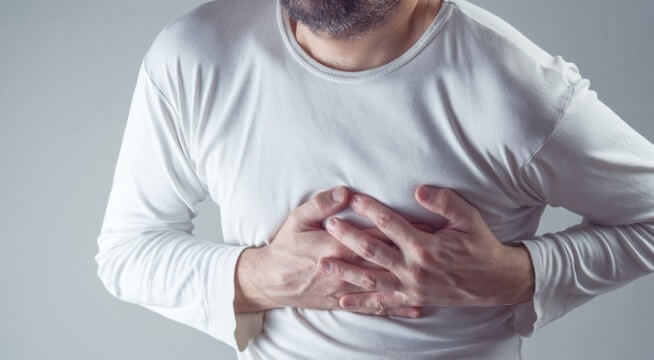
Did you know that one out of every four deaths in the United States is caused by heart disease? It’s a sobering statistic that showcases the pandemic proportions of this malady.
It’s also an urgent reminder to (a) learn to recognize the symptoms of a heart attack, and (b) be proactive about incorporating healthy lifestyle changes to lower the likelihood of suffering a heart attack.
Myocardial infarction, also known as a heart attack, is the top killer of men and women in the United States. Approximately 1 million people in this country suffer one each year, and nearly half of them are fatal.
What Causes Heart Attacks?
A heart attack occurs when blood flow to the heart is obstructed. The blockage is caused by a buildup of fat deposits, cholesterol, and plaque buildup inside the arteries that provide blood to the heart.
The longer the blockage remains, the larger the extent of damage to the heart, which can range from permanent damage to death.
Other causes of a heart attack include significant amounts of stress or physical exertion since both can cause the arteries to contract, restricting blood flow.
Heart Attack Risk Factors
There are many factors that increase the risk of a heart attack:
- Stress
- Poor diet
- Obesity
- High cholesterol
- High blood pressure
- Sedentary lifestyle
- Smoking
- Excessive consumption of alcohol
- Having suffered a previous heart attack
- Autoimmune disorders
While there are some things that are out of a patient’s control if they suffer from an autoimmune disease, many of the risk factors are directly related to lifestyle choices. Therefore, by incorporating exercise into your daily routine, opting for healthier food choices, and quitting smoking, you can significantly reduce your risk of a heart attack.
7 Warning Signs of a Heart Attack
If you are aware of heart attack symptoms, then you will be much more likely to survive. The survival rate of people who receive prompt medical attention is more than 90 percent.
Symptoms can vary; in fact, a person who may have had a previous heart attack might experience different symptoms if another one occurs.
While some heart attacks are sudden, there are many instances when a patient feels symptoms gradually. Someone having one may not even immediately realize what is happening. If you experience any of the signs below, call 911 immediately. It’s better to have a false alarm than to wait it out and risk death.
Call for help even if you feel like you’re alert enough to drive. Symptoms could worsen on the way to the hospital, and you’d be putting your life and the lives of other motorists at risk.
1. Shortness of Breath
This is one of the earliest signs and can sometimes start weeks before a heart attack. If you’re suddenly feeling fatigued or exhausted despite the fact that there’s been no increase in your level of physical activity, this is cause for concern.
2. Chest Pain
It could range from mild discomfort to actual pain. It can feel like your chest is being squeezed or like there’s pressure or weight on it. The pain or discomfort can appear for a while, disappear, and return several hours later. Some people don’t experience chest pain at all.
3. Jaw Pain
A person who’s experiencing a heart attack often feels jaw pain that radiates to the teeth, neck, back, and down the left arm.
4. Pain in the Lower Abdomen
This symptom is more common in women.
5. Lightheadedness
This feeling is exacerbated when standing up.
6. Cold Sweat
This is due to the body working in overdrive trying to deliver adequate blood flow and oxygen to the heart.
7. Nausea
Keep in mind that not everyone experiences this symptom.
Something else to consider is that even though taking aspirin could help prevent your blood from clotting, doing so could interfere with other medications you’re taking; so let your doctor know if you’re taking prescription medications.
24-Hour Emergency Room Services in Colorado Springs and Texas
If you think you may be having a heart attack, call 911 for an immediate lifeline! If you have questions, your nearest Complete Care location is ready to help and can provide the care you need, no matter the time of day or night. We offer a variety of services to help you and your family in your time of need. No appointments are necessary.
We cannot emphasize enough the need for fast medical action if a heart attack occurs. If you have any reason whatsoever to feel you are having one, get to your nearest emergency facility as quickly as you can so that treatment can be administered right away.
Visit us online to find the Complete Care location nearest you.
